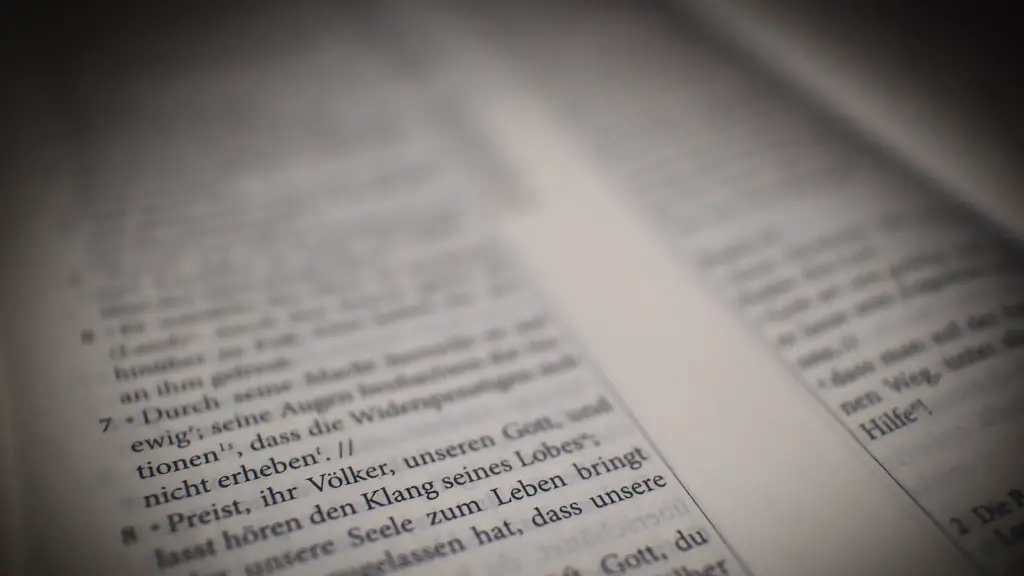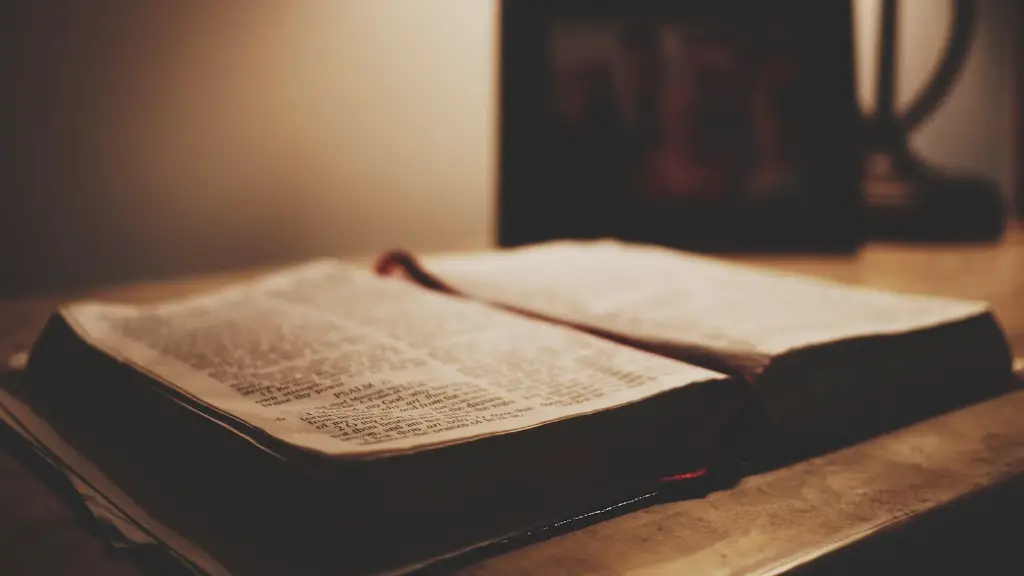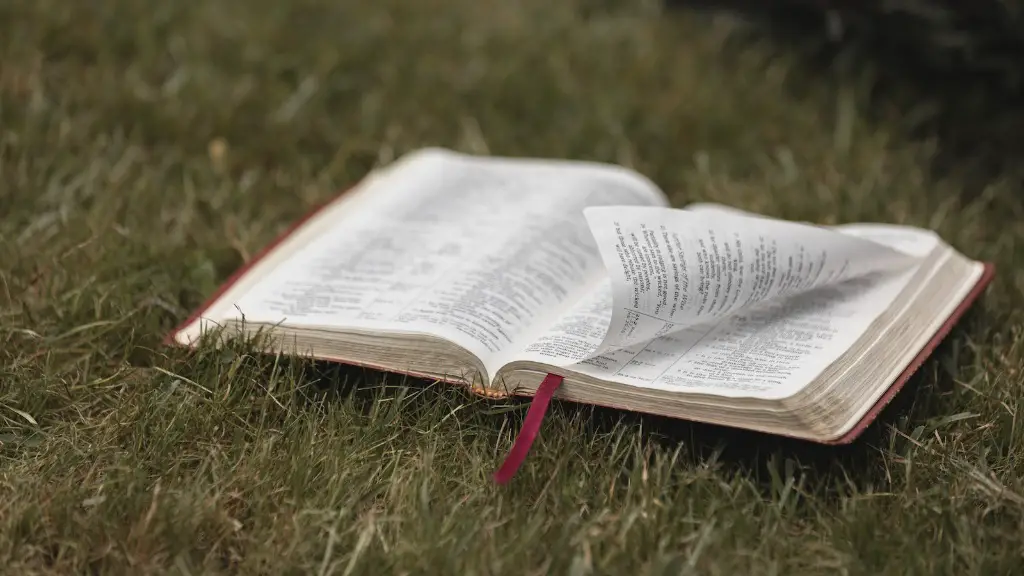Atheism and Oaths in Court
Atheism is defined as the lack of belief in any god or deity. As such, atheists usually do not have religious beliefs or affiliations and as a result, often individuals struggle with the notion if an atheist should swear on a bible in court proceedings. This article aims to explore the role of an atheist in the courtroom, with regards to taking oaths and provide an in-depth analysis of this topic.
Understanding the Role of Oaths in Court
In the court of law, it is a necessity that the witnesses give their testimonies in an honest and unbiased manner. To assure that the witness is being truthful in their testimony, it is customary for the person to swear an oath to commit to the accuracy and genuinity of their statements.
An oath can be taken in several ways. It can be sworn on any book considered meaningful, generally a religious text such as the Bible. An oath can also be sworn by simply raising one’s hand and pledging to tell the truth by affirming it.
Lawyer and Author, David M Bernstein, explains the process of taking an oath more clearly in his book, ‘Law in Society: An introduction to Civil Law and Legal Reasoning.’ He writes, “To take an oath, a witness raises an arm of affirmation, swears to tell the truth, and, if desired, places a hand on a religious text.”
Rules Surrounding Taking an Oath in Court
As previously mentioned, it is required for a witness to take an oath in court proceedings to swear that their statements are true. The rule concerning the method of administering the oath varies across legal systems.
In the United Kingdom, the ‘Oaths’ Act 1978, Section 3, states:
“A person shall not be compelled to take an oath or to make a declaration or affirmation of his belief in a Supreme Being, or to make a declaration or affirmation in the following form, that is to say—’I, A.B., do swear by Almighty God (or, as the case may be, do solemnly, sincerely, and truly declare and affirm) that the evidence I shall give shall be the truth, the whole truth, and nothing but the truth.”
In the US, there are no clear-cut rules which state that an oath must be sworn on a bible and those appearing in Court are allowed to swear on whatever religious text the individual finds more appropriate or meaningful.
The general rules dictate that an oath is sworn either by raising the hand and making a pledge to speak the truth, or to place one’s hand over a holy book and promise not to ‘lie’.
As is evident from the aforementioned rules, an atheist does not have to put their hand on a Bible to take an oath. They can simply raise their arm of affirmation and make a pledge to tell the truth, in case of a religious text not being allowed in the courtroom.
The Role of an Atheist in the Courtroom
As aforementioned, an individual can opt to omit the aspect of swearing on religious texts when taking an oath in Court. So, in light of this, what role must an atheist undertake when they are in a courtroom?
An independent legal research group, the Online Law Library, discusses the problem of how an atheist should approach the problem of taking an oath in Court. “For statutes which require an affirmation by Atheists, some courts have substituted ‘under the pains and penalties of perjury.’ An oath affirms a belief in God, so an atheist cannot take an oath and it is not the court’s job to force them to do so. So, if an atheist does not have any religious beliefs, h/she can still make a honesty pledge without taking an oath.”
The answer to this then, is that an atheist is indeed able to swear an oath in court without having to swear it on the bible. The individual is allowed to use an alternate practice of affirming their truthfulness and sincerity towards the court proceedings.
Expert Opinion on the Rights of an Atheist in the Courtroom
When it comes to this conversation, it is essential to hear the opinion of professionals who have expertise in the field of law. Lawyer, Robert G. Spitzer, through his book, ‘Great loan Challenges: Supreme Court Decisions that Have Shaped America’ expresses his sentiments on the matter.
He writes, “In regard to the freedom of worship and thought, the Court has generally been liberal, although the tendency to worry about atheists has been hard to shake… The Court held that a negative affirmation in the form of a statement such as, ‘I do not swear by the Bible’ was sufficient for the lawyer taking the witness stand.”
From this, it can be concluded that the rights of an atheist in the Courtroom are protected by the Constitution, meaning that individuals can take an oath in the courtroom regardless of their religious beliefs or affiliations.
The Role of Religion in the Courtroom
It is clear that while the notion of swearing on the Bible has been deemed unconstitutional, however, its role in the courtroom has remained relevant in most courts.
Lawyer, Yolanda Young, in her book ‘On our watch: The crucial role of the U.S. courts’ states, “In the court, if a witness is to read an oath, it should begin with three words: ‘I swear’. Under our system of justice, a defendant or a witness at trial may march up to the witness stand, unsworn and loose-limbed, wrap one hand around the Bible and raise it in a salute and touch the other hand in affirmation that s/he will tell the truth.”
From this, it is clear that while the role of religious texts in court is recognised, not all methodologies are suitable for every individual and an alternate process can be adopted.
Practical Implications Of An Atheist Swearing An Oath In Court
It is necessary to consider the practical implications that could arise in light of a situation where an atheist wishes to demonstrate his/her sincerity and truthfulness in a court of Law, but at the same time refuse to swear on the Bible.
In this situation, most legal systems, as previously mentioned, permit alternate methods such as affirming the statement with a raised hand and an honest pledge and as such, it is a viable solution that an atheist could adopt in the courtroom.
Psychological Implications of An Atheist Swearing An Oath In Court
It is also important to discuss the psychological implications that this situation can have on the individual in question. Since Atheism is the lack of belief in any God, asking the individual to swear on a bible would entail taking a pledge in the name of a God the individual does not believe in.
This could lead to feelings of unease and distress in the court of Law and as a result, the individual in question is allowed to express alternate methods of taking an oath.
The Legality of Not Swearing On a Bible In Court
The subject of not swearing on the Bible has been widely debated in court, with some in favor and others against it.
The US Supreme court judgement in Torasco v Watkins in 1961 acknowledges the rights of an individual to avoid swearing on a bible if it conflicts with the individual’s moral or ethical code. The Court’s decision to not penalise the petitioners and allow them to swear an oath in their own ways was an important first step in recognizing the right of an individual, who does not feel comfortable swearing on a bible, to be heard in court.
Modern Implications Of an Atheist Swearing An Oath In Court
This debate has particular relevance in the modern world where freedom of speech and thinking are considered to be fundamental rights.
A 2017 report by the Pew Research Center discussed the rise of religious nones or ‘those who self-identify as atheists or agnostics in lands where such views can be expressed freely and without much fear of repercussions”.
As such, if the prevalence of atheism continues to increase, it is likely that courtrooms across the world will have to begin considering alternate methods for atheists to take an oath in court.
Role of Lawmaking And Politicians
In 1990, the European Court of Human Rights heard the case of Willem Oltmans vs The Netherlands in which the plaintiff had refused taking an oath to tell the truth in a criminal court case. The court ultimately held that the refusal to allow the plaintiff to take an oath in his own terms was prohibited by court.
Furthermore, The University of Houston Law Center in Texas published a paper in 2004 discussing the implications of religious belief and the efforts of lawmakers to ensure protection to atheists and religious minorities in the court of law.
Repercussions Of Belief Being Challenged In Court
It is essential to consider the consequences that could arise in the court of law if such matters remain unresolved.
The Court of Appeals in California heard a case in 1975 in which two defendants expressed difficulty swearing on a Bible even though their Jewish beliefs made them uncomfortable with doing so. It was decided that both defendants could swear an oath without using the Bible and their rights were upheld by the court.
As is evident from the aforementioned case, the significance of these matters can be far reaching if individuals are not allowed to express their beliefs in court.
Conclusion
In conclusion, this article has aimed to explore the role of an atheist in the courtroom, with regards to taking oaths. Through analysing the rules which surround this issue, the article has explored the implications that this could have, both practically and psychologically if an individual decided not to swear on the Bible in court. In addition, the article has considered the opinions of experts and legal practitioners on the matter. Through this, it has been established that the rights of an atheist are protected by the constitution and as such, an individual is allowed to take an oath in court in any way h/she sees fit.



